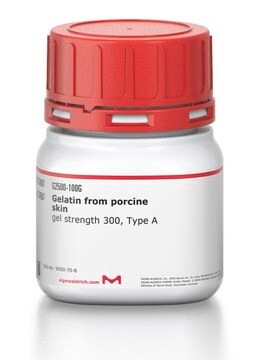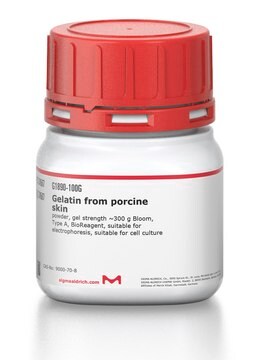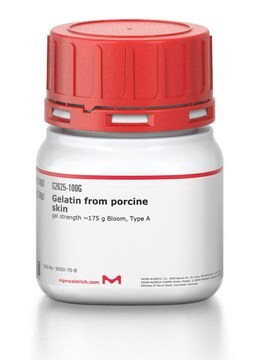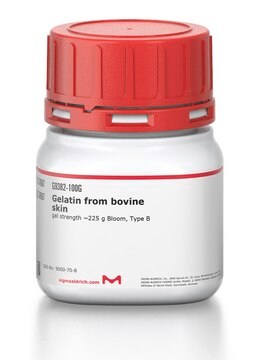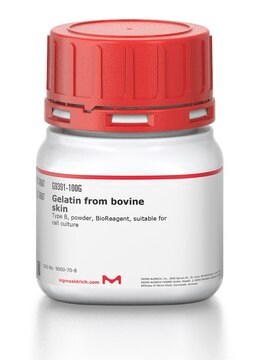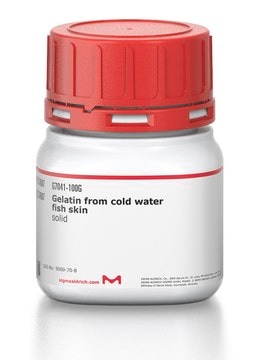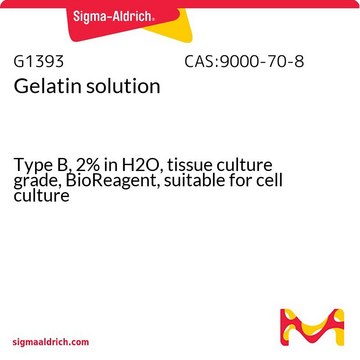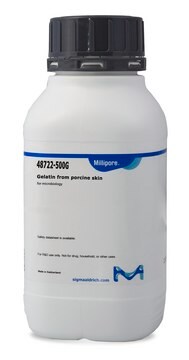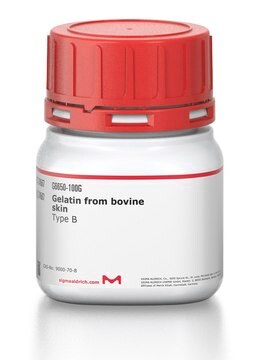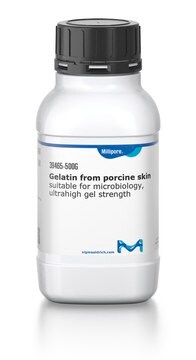G6144
Gelatin from porcine skin
gel strength 80-120 g Bloom, Type A
Synonyme(s) :
Gelatin powder, Teleostean gelatine
About This Item
Produits recommandés
Vous recherchez des produits similaires ? Visite Guide de comparaison des produits
Application
Gelatin has been used in many applications. It has use in coating cell culture to improve attachment of cells, being added to PCR to stabilize Taq DNA, as a blocking reagent in Western blotting, ELISA, and immunochemistry, and as a component of media for species differentiation in bacteriology. As a biocompatible polymer, it has used as a delivery vehicle for release of active biomolecules and in generation of scaffolds for tissue engineering applications. In the pharmaceutical industry, geltan can be used as a suspending and encapsulating agent, among other applications.
Composants
Attention
Notes préparatoires
Code de la classe de stockage
11 - Combustible Solids
Classe de danger pour l'eau (WGK)
nwg
Point d'éclair (°F)
Not applicable
Point d'éclair (°C)
Not applicable
Équipement de protection individuelle
Eyeshields, Gloves, type N95 (US)
Certificats d'analyse (COA)
Recherchez un Certificats d'analyse (COA) en saisissant le numéro de lot du produit. Les numéros de lot figurent sur l'étiquette du produit après les mots "Lot" ou "Batch".
Déjà en possession de ce produit ?
Retrouvez la documentation relative aux produits que vous avez récemment achetés dans la Bibliothèque de documents.
Les clients ont également consulté
Articles
Discussion of synthetic modifications to gelatin, improving the three-dimensional (3D) print resolution, and resulting material properties.
Notre équipe de scientifiques dispose d'une expérience dans tous les secteurs de la recherche, notamment en sciences de la vie, science des matériaux, synthèse chimique, chromatographie, analyse et dans de nombreux autres domaines..
Contacter notre Service technique